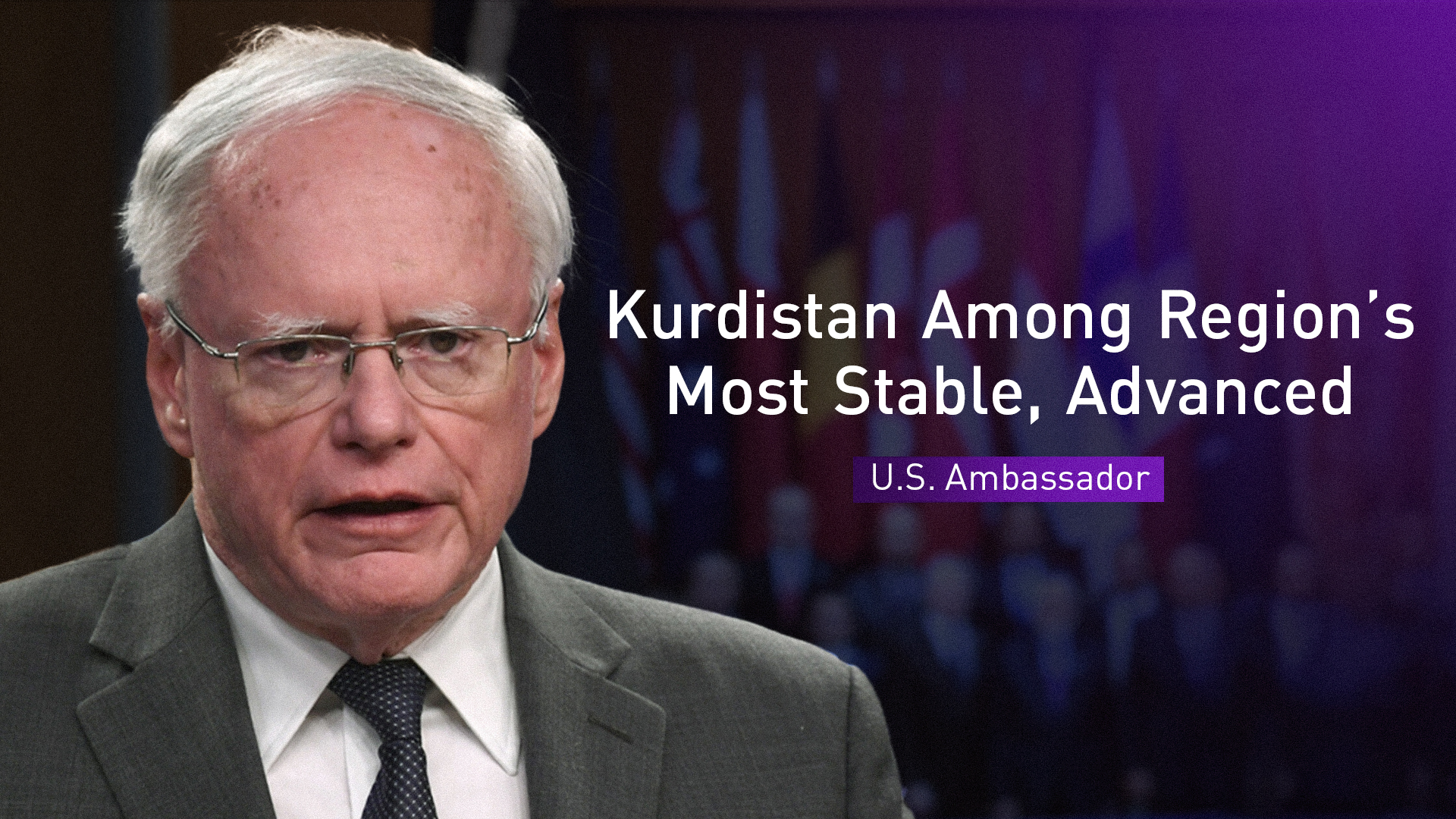U.S. Ambassador: Kurdistan Among Region’s Most Stable, Advanced
“I think it is one of the most stable, one of the most advanced, economically successful, and pleasant places in the region," James Jeffrey stated.

By Kamaran Aziz
ERBIL (Kurdistan24) – Former U.S. Ambassador to Iraq James Jeffrey has praised the Kurdistan Region as one of the Middle East’s most advanced, stable, and economically successful areas, highlighting its growing international partnerships and its enduring strategic importance 34 years after the historic adoption of United Nations Security Council Resolution 688.
In an exclusive interview with Kurdistan24, Ambassador Jeffrey said, “I think it is one of the most stable, one of the most advanced, economically successful, and pleasant places in the region. I think everyone from all of Iraq understands that, which is why you get so much essentially tourism and trade with the rest of Iraq. I think that beyond France, Britain, the United States, and Turkiye, the Kurdistan Region has very important economic, diplomatic, and other ties with Arab states, for example.”
The ambassador’s remarks came on the anniversary of UNSC Resolution 688, adopted on April 5, 1991, after France, Turkiye, and Iran called on the UN to protect the Kurdish population from Saddam Hussein’s brutal repression. The resolution was the catalyst for Operation Provide Comfort, in which the United States, France, and the United Kingdom enforced a no-fly zone over the 36th parallel, creating a de facto safe haven and laying the foundation for the Kurdistan Region as a recognized political entity.
Reflecting on the progress since that pivotal moment, Jeffrey emphasized that the countries which once acted to protect the Kurds now maintain deep-rooted diplomatic and economic ties with the Kurdistan Region. “You have very close relations with key countries, beginning with the United States, with Turkiye, with France, and with Britain,” he said. “These relations are not in contradiction to, but complement the relations that all of these countries have with the entire state of Iraq and with the government in Baghdad.”
When asked whether the international community should continue supporting the Kurdish people in securing their constitutional rights, Jeffrey affirmed, “They do. They all support the Iraqi constitution, including the regional status of Kurdistan. They support the independence of the country, the fight against the Islamic State, and the efforts to fend off the bad influence of Iran. So I think that you have good friends throughout the world, but particularly in North America and in Europe.”
Ambassador Jeffrey also addressed the broader Kurdish question across the four parts of Kurdistan, noting that while challenges persist, there are signs of progress. He expressed cautious optimism regarding recent developments, including dialogue between Damascus and Kurdish authorities in northeast Syria, as well as potential openings in Turkish-Kurdish relations through outreach between the Turkish government and imprisoned PKK leader Abdullah Ocalan.
On the path forward, Jeffrey stressed the importance of leveraging international support, particularly from the United States, in facilitating political arrangements in Syria similar to those achieved in Iraq in the early 2000s. “The United States played a big role in first protecting the Kurds of northeast Syria against the Islamic State, and the Kurds of northern Iraq against the Saddam regime,” he said. “It also worked very hard in 2004 and 2005 to ensure that Kurdistan could be integrated in the right way as a region into the larger Iraqi state. That’s a good example.”
Jeffrey’s remarks underscore not only the resilience of the Kurdistan Region but its emerging role as a vital node of stability, diplomacy, and economic vitality in a volatile region. More than three decades after international intervention helped save a people from genocide, the Kurdistan Region stands as a testament to what sustained support, strategic alliances, and local governance can achieve.